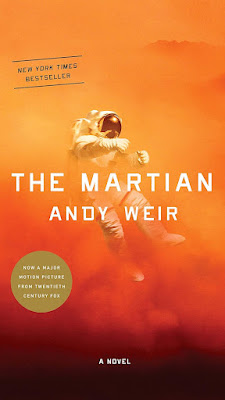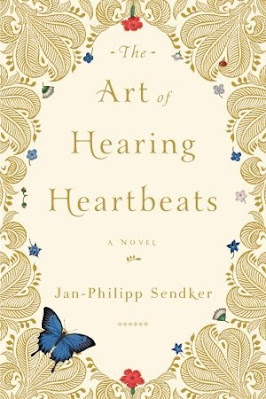Book Beginnings on Fridays (hosted by
Rose City Reader)
The old man's eyes struck me first. They rested deep in their sockets, and he seemed unable to take them off me. Granted, everyone in the teahouse was starring at me more or less unabashedly, but he was the most brazen. As if I were some exotic creature he'd never seen before.
💓 Julia Win came to Burma to seek answer. Answer to her father's mysterious disappearance four years ago from New York, and from her and her mother's life. One day his father Tin Win left abroad, but never returned. They found out that he went to Burma, instead of the country he intended to. But there his traces disappeared. Four years later Julia read a love letter to her father written by a Burmese woman called Mi Mi. Who is Mi Mi? And why had her father never spoken about the first twenty years of his life in Burma to anybody, not even his wife? Julia decided to go to Kalaw, Burma, to get to the truth.
💓 In Kalaw, she was met by a strange old man called U Ba. That's the encounter in the opening line. He told her a wonderful story of her father - the first twenty years of his life he never told anyone before, including his relationship with Mi Mi. And what a story that is!
💓 The story U Ba told Julia was, for Westerner even at that time (1960s), extraordinary. Superstition and astrologer were two dominant things in Burmese people in every step of their lives, typical of South East Asian country whose people were poor and low educated. Tin Win was born on the "wrong day", and so their parents expected only bad things to him and themselves. Every calamity was blamed on Tin Win; and he grew up as a sensitive, affectionate, intelligent boy, capable of great love, but never been loved.
Friday 56 Quote (hosted by
Heads Full of Books):
Tin Win's life had not spanned twenty-one days when, at least from his mother's perspective, its whole course had been decided. Lived. Forfeited.
💓 When his mother, who was his only family left, abandoned him, it was too much for Tin Win. I literally wept with him. How could a mother do that to her only child? No matter how stupid or superstitious one is, surely a mother should have had an instinct to protect her child! But she left and never returned, so Tin Win was brought up by a very kind neighbor, a woman called Suu Kyi, as her own son. Then, another calamity came, little Tin Win got a rare cataract on both eyes and gone blind.
💓 A wise monk at the monastery taught Tin Win that human being is capable of perceiving things much better and sharper when he use all his other senses besides the eyesight. And Tin Win began to be aware of even the most imperceptible sounds around him; the flutter of a butterfly's wings, the rustle of certain leaves (every tree made different sound), and even... the heartbeats of people around him. Particularly, that of a girl of his age, named Mi Mi.
💓 Mi Mi is crippled, she couldn't walk due to her stiff legs (polio?), so she crawled on all four to get anywhere. The most undignified way a human being could imagine to move, but surprisingly, Mi Mi always moved very gracefully. She was always patient and never complained of her condition. Soon Tin Win and Mi Mi became inseparable. Everyday, year after year, Tin Win was seen carrying Mi Mi on his back, while the girl is guiding him, becoming his eyes, during their excursions. And just as they are dreaming of marriage, and what they will do to build a future, a summon from a rich uncle in New York came - Tin Win must go away from everything he loved in the world - his Kalaw, his home, and his love, Mi Mi. And that's how he later met Julia's mother. What happened then? Had he ever met Mi Mi again? And will Julia reunite with his father in Burma? Does he live with Mi Mi? You must read this amazing story to find the answer.
💓 Suffice to say, this is a magnificent book. It's been quite a long time since I last read a book that has left deep Impression in me long after I finished it. And I have no doubt this would be my most favorite book of the year. I can't find appropriate words to describe it - it's a humbling experience to read this book. It's tender, deep, touching, and written so beautifully it made me want to cry. I admire the kind of love between Tin Win and Mi Mi. It's not a passionate one that leaves you wretched when you're separated, nor is it a selfish one that you have to have the other for yourselves no matter what. No, it's much deeper and beyond all that; no pain, no jealousy, just contentment that you have loved and been loved, and no matter how far away you are from each other, that love is always in you, no one or nothing can take it away from you.
Two of my favorite quotes:
"And so there must be in life something like a catastrophic turning point, when the world as we know it ceases to exist. A moment that transforms us into a different person from one heartbeat to the next. And if these turning points are real, are we aware of them as they happen, or do we recognize the discontinuity only much later, in hindsight?"
"Do we leave the dead behind or do we take them with us? I think we take them with us. They accompany us. They remain with us, if in another form. We have to learn to live with them and their deaths."
Rating: 💓💓💓💓💓
































.jpg)







